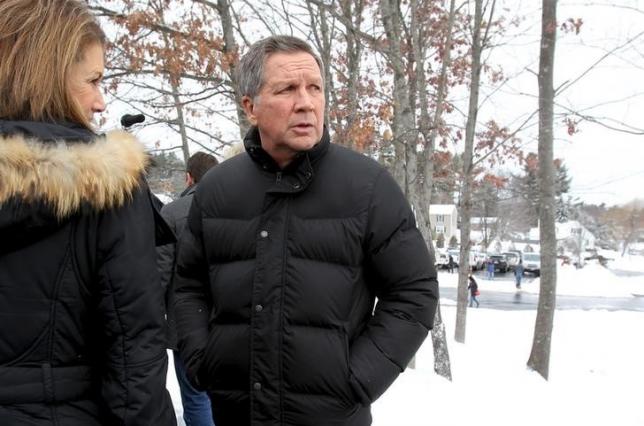US presidential candidate Kasich surprises on Google Trends
US Republican presidential candidate John Kasich, who has struggled to generate enthusiasm for his campaign, made a surprise showing on Google Trends on Tuesday in the run-up to New Hampshire's primary.
After beating Republican rival Donald Trump by 3-2 in the tiny town of Dixville Notch, the first community to vote in the New Hampshire primary, Kasich appeared to pique voters' interest in the state, which holds the first-in-the nation presidential nominating primary.
Google Trends data showed on Tuesday evening that the Ohio governor was the top-searched candidate associated with the search "Vote for..." (i.e., "Vote for John Kasich). Carly Fiorina and Ted Cruz were the second- and third-most commonly queried candidates under that search term.
Kasich has long staked the viability of his campaign on the outcome in New Hampshire. He picked up less than 2 percent of the votes in the Republican Iowa caucuses last week, the first in the state-by-state nominating contests for the Nov. 8 presidential election.
SANDERS STAYS STRONG
Elsewhere on social media, Democratic presidential candidate Bernie Sanders held strong.
Sanders won a bigger share of the social conversation among millennials in New Hampshire than rival Hillary Clinton before Tuesday's primary, according to Yik Yak, an app that has mostly younger users.
CNN projected on Tuesday that Sanders, a US senator from Vermont, won the New Hampshire primary.
On the Republican side, Trump, a billionaire businessman who CNN projected won the New Hampshire primary, received 61.3 percent of mentions on Yik Yak over Cruz, a US senator from Texas, who brought in 12.4 percent.
Sanders was the most-discussed candidate on the Democratic side, capturing 55.3 percent of mentions in yaks, or anonymous posts made by users, in New Hampshire, compared with Clinton's 44.7 percent, the location-based app said. The data was measured between the Feb. 1 Iowa caucuses and Monday, the eve of the New Hampshire primary.
Sanders also received a 21.8 percent approval rating on Yik Yak, compared with Clinton's 7.4 percent.
While social media buzz does not necessarily translate into votes, it can be a good indication of the interest level surrounding a candidate. Sanders also had a strong performance on social media during the Iowa caucuses, where he lost narrowly to Clinton, the former secretary of state.






